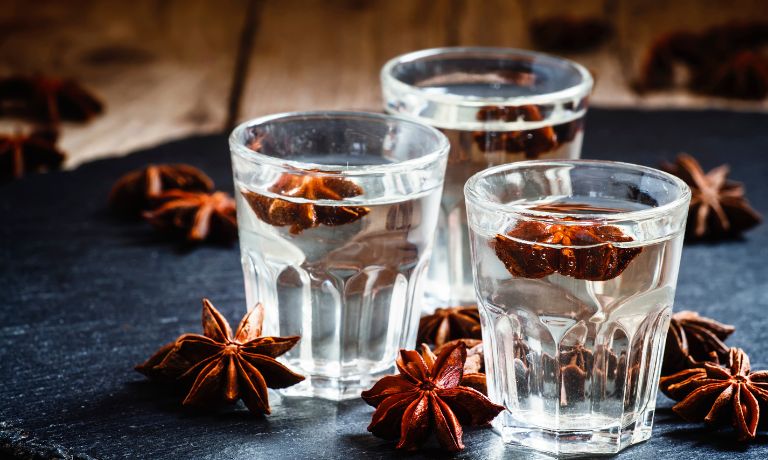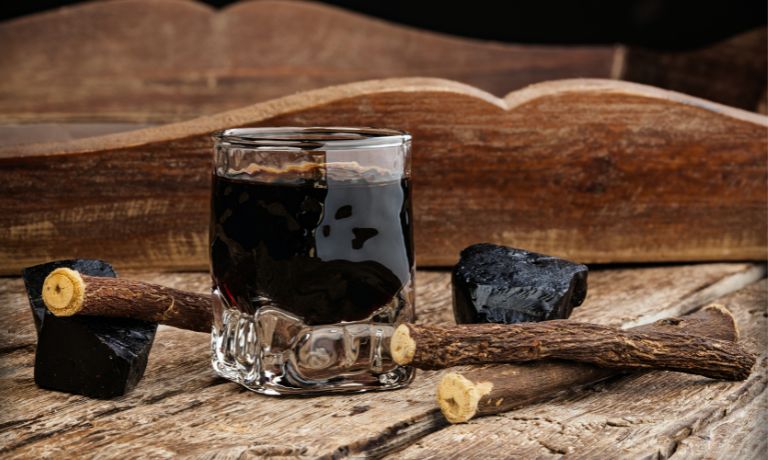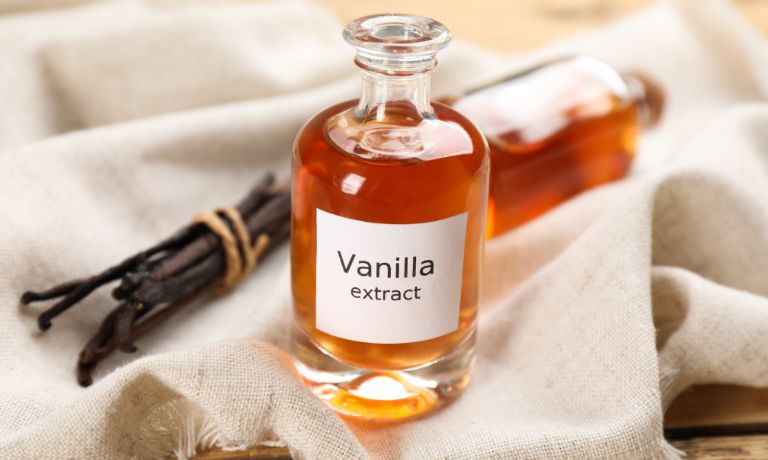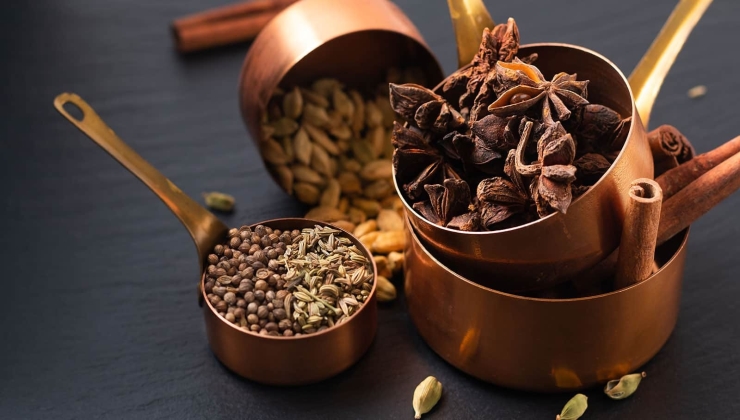If you’re a fan of sweet and licorice-flavored liqueurs, the chances are that anise liqueur must be one of your favorite go-to drinks.
Anise liqueur has been popular worldwide for centuries as it can provide a powerful taste for mixes and cocktails.
However, if you’re unable to find anise or just looking for alternatives, look no further!
In this blog post, we’ll explore some delicious options to substitute for anise liqueur to tantalize your taste buds without sacrificing too much flavor.
So grab a cozy spot to enjoy our substitutes as we take you through their incredible properties!
What Is Anise Liqueur?
Anise liqueur, also known as anisette, is a sweet alcoholic beverage flavored with the flavoring of aniseed.
The liqueur is usually made with aniseed extract, sugar, and alcohol like vodka or brandy.
It is usually served as a digestif or after-dinner drink.
Anise has been used for centuries in cooking and baking to add flavor, aroma, and sweetness to dishes like soups, stews, pastries, and desserts.
Anise liqueur has a sweet, liquorice-like flavor and is often enjoyed on its own or added to coffee, tea, or cocktails.
It can also be used in baking recipes like cakes and cookies for an extra layer of complexity.
Popular brands of anise liqueur include Pernod Ricard’s Pernod Anisette, Sambuca, and Ouzo.

Substitutes For Anise Liqueur
If you don’t have access to an anise liqueur or prefer not to use it, several suitable alternatives can be used.
Absinthe
Absinthe is a high-proof alcoholic beverage that was historically made with wormwood oil and other herbs such as anise, fennel, and hyssop.
It has a pleasant anise-like flavor which gives it its characteristic licorice taste.
As a result, Absinthe can be used as a substitute for anise liqueur, such as Ouzo and Anisette.
The traditional preparation of absinthe involves steeping the herbs in alcohol and boiling off the alcohol vapor to make a highly concentrated extract.
This concentrate is then diluted with water and sugar before bottling it for sale.
Absinthe is typically served with water, ice cubes, or both added to the glass.
Adding water causes a milky color, known as the “louche” or “opalescence” effect, caused by essential oils being released from within the herbs and dispersing throughout the drink.

Ricard
Ricard is a French anise-flavored liqueur made from star anise, licorice, and herbs.
It has a sweet, mildly bitter taste with hints of citrus and floral notes.
Ricard has traditionally been used as an aperitif or digestif (a beverage consumed before or after a meal).
It can be sipped neat, added to cocktails, or used as an alternative to anise liqueur in recipes.
Ricard has a slightly more intense flavor than traditional anise liqueur and is often used as a more prominent flavor in drinks such as the Pastis Sour.
Ricard can also be used instead of an anise liqueur in baking recipes to add a subtle anise flavor.
Its versatility makes it a popular choice for home cooks and professional chefs.
Sambuca
Sambuca is an Italian liqueur made from aniseed, or star anise. It has a sweet, licorice-like flavor and usually comes as a clear liquid.
However, there are also varieties of different colors such as blue, green and red.
It is typically served neat, with three coffee beans floating on top.
In Italy, it is sometimes referred to as “sambuca near,” meaning black sambuca, and is usually consumed after a meal as a digestif.
It can add a unique flavor to cocktails or desserts, as it pairs well with many flavors such as fruit, chocolate, and coffee.
Sambuca is also often added to espresso for an Italian-style after-dinner drink.
Sambuca can be an appropriate substitute for anise liqueur, such as ouzo or absinthe.
While these drinks typically have a high alcohol content, Sambuca is usually lower in proof and can be consumed in larger amounts without the same effect.
Additionally, it has a milder flavor than anise liqueurs, making it more suitable for mixing with other ingredients.

Licorice Liqueur
Licorice Liqueur is a type of liqueur with a strong licorice flavor.
It infuses licorice extract and other flavors into a neutral spirit, often vodka or brandy.
Licorice Liqueur can be used as an ingredient in many cocktails, as it adds an intense licorice flavor and sweetness.
It can be used instead of anise liqueur, especially when an intense licorice flavor is desired.
Like anise liqueur, Licorice Liqueur is often used in baking recipes to add a unique sweetness and complexity to desserts.
Additionally, it can also be enjoyed neat or over ice.
Licorice Liqueur is a great substitute for anise liqueur due to its intense licorice flavor.

Licorice Extract
Licorice extract is a natural product made from the root of the licorice plant.
It has a strong, sweet flavor and can be used as a flavoring or sweetener in many food and beverage products.
Licorice extract is commonly used in candy, ice cream, cookies, cakes, pastries, beverages, and more.
It is also an ingredient in some liqueurs, such as Sambuca and Pernod.
Licorice extract can be substituted for anise liqueur in recipes because it has a similar flavor profile. It has a sweet yet slightly bitter taste.
While licorice extract will not have the same alcoholic content as an anise-flavored liqueur, the flavor is still similar.
When using licorice extract instead of anise liqueur, it is important to use a small amount, as too much can overpower the taste.
Vanilla Extract
Vanilla extract is a flavoring made from beans soaked in alcohol or glycerin.
It is a common ingredient used in baking and can be found in most grocery stores.
Vanilla extract has a sweet, slightly spicy flavor that adds complexity to recipes.
It’s widely used to enhance the taste of desserts, beverages, and other dishes.
In some recipes, vanilla extract can replace anise liqueur because of its similar flavor profile.
While it won’t have the same licorice-like notes as anise, it will still provide sweetness and complexity to a recipe.

Anise Extract
Anise extract is a concentrated form of anise, a licorice-flavored spice derived from the seeds of the anise plant.
It is commonly found in many recipes for cakes, cookies, pies, and pastries.
The extract has a strong flavor that can substitute for anise liqueur in baking recipes.
Anise extract contains the same essential oils as anise liqueur but is significantly stronger in flavor.
To replace anise liqueur in a recipe, add 1 teaspoon of the extract to every ¼ cup of liqueur that is called for.
Because the extract is more concentrated than anise liqueur, adding too much can ruin the flavor of your dish.
Therefore, it is important to be mindful when cooking with anise extract.
FAQs
Is It Possible To Replace Anise Liqueur With Anise Extract?
Yes, you can substitute anise extract for anise liqueur in recipes.
However, the flavor will be less strong, so you may use more than the recipe calls for.
Does Anise Liqueur Have A Sweet Taste?
Yes, anise liqueur has a sweet taste often described as licorice-like or reminiscent of black jelly beans.
Depending on the recipe, it can also have herbal notes or hints of fennel and citrus.
Is Anise Liqueur Identical To Sambuca?
No, anise liqueur and sambuca are not identical.
Anise liqueur is a broad category of spirits that can be made with different base ingredients, such as brandy, gin or vodka.
Conclusion
Anise liqueur adds a unique flavor to many recipes.
While it is the most popular option, several other ingredients can substitute for anise liqueur.
These are Licorice Liqueur, Licorice Extract, Vanilla Extract, Anise Extract, and Anise Spirits.
Each ingredient has its unique flavor profile that can add complexity and sweetness to dishes.
However, remember that these ingredients should be used in moderation, as too much can overpower a dish.
With careful consideration, anise liqueur substitutes can help you create unique and flavorful recipes!


